1.2 Human rights in detention during a pandemic (2020)
Inside and outside prison walls, restrictions imposed across society for reason of public health protection have given rise to important questions on rights, responsibilities and obligations during an emergency period. From the onset of the pandemic, human rights bodies joined the WHO in publishing statements and guidance on the protection of people in detention settings.
The European Committee for the Prevention of Torture and Inhuman or Degrading Treatment or Punishment (CPT) issued a statement in which it outlined the basic principle that its Member States ought “to take all possible action to protect the health and safety of all persons deprived of their liberty.”[21] The CPT also reminded Member States that any steps taken should ensure the absolute prohibition of torture and inhuman or degrading treatment. In a follow-up statement, the CPT sent a clear message to Member States that they must put human rights first at all times:
The CPT must stress that the ongoing crisis demonstrates the clear need to put human rights first, in decision-making in the context of the pandemic and beyond. Each measure taken by the authorities of member States should be based on a thorough assessment of its concrete implications for the human rights of all persons concerned. In short, respect for human rights should become a reflex for all officials.[22]
The United Nations Sub-Committee for the Prevention of Torture (SPT) also highlighted that the State should take full account of the rights of persons deprived of their liberty, their families, detention and healthcare staff when taking measures to combat the pandemic.[23]
There is a positive obligation on the State to support the right of everyone to enjoy the highest attainable standard of physical and mental health (Art. 12, ICESCR).[24] In respect of people deprived of their liberty, States’ positive obligations “to protect life and bodily and mental integrity are amplified”.[25] In the context of the threat to life and health presented by Covid-19, these positive obligations mean that “exceptional” measures may be justified. However, such measures are subject to legality limits within the European Convention on Human Rights (ECHR), and measures that amount to infringements on human rights must be necessary and proportionate, and subject to regular and rigorous oversight and review:[26]
“While the imperative to protect individuals from grave harms is very strong and may justify or even require a range of ‘exceptional’ measures, it does not require or give licence to States to act in ways that are unlawful under the Convention.”
The prevention of harm and human rights violations during the pandemic through urgent and systemic reforms[27] was adopted as a key focus for penal reform campaigners in Ireland and around the world. It remains a dominant concern. Our position remains clear: if basic human rights cannot be met for all people in prison, then the State is obliged to take steps to further reduce numbers in prison.
References:
-
21.
^
-
22.
^
CPT/Inf (2020) 21 Follow-up statement regarding the situation of persons deprived of their liberty in the context of the ongoing COVID-19 pandemic, https://rm.coe.int/16809ef566
-
23.
^
-
24.
^
-
25.
^
-
26.
^
Ibid.
-
27.
^

